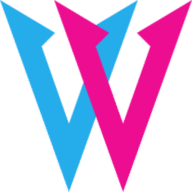The journey of self-education doesn’t begin with a diploma, a classroom, or a professor. It starts with curiosity — that quiet whisper in the back of your mind asking, “What if I could learn that?” Whether you’re a freelancer looking to sharpen your skills, an entrepreneur exploring new markets, a jobseeker trying to stand out, or someone simply hungry for knowledge, the tools to educate yourself are more accessible than ever — and most of them are free.
The idea of formal education being the only path to growth has long been dismantled. Today, countless professionals, investors, and side hustlers are building careers and businesses on knowledge they acquired outside traditional institutions. With the internet, learning has become less about gatekeeping and more about access, persistence, and direction. The challenge isn’t finding information; it’s knowing where to start and how to stay on track.
That’s where free learning tools come in. These platforms, apps, and resources don’t just offer knowledge — they offer structure, community, and feedback. When used wisely, they can rival the depth and rigor of formal programs. And because they’re free, they remove one of the biggest barriers to entry: cost.
Let’s walk through some of the most powerful tools available right now — the ones that have helped people transition careers, launch startups, master new technologies, and even earn certifications without spending a dime.
1. Massive Open Online Courses (MOOCs): The Backbone of Self-Education
MOOCs are the foundation of modern self-directed learning. They offer structured courses from universities and institutions around the world, covering everything from computer science to philosophy. The best part? Most of them let you audit courses for free.
Coursera is one of the most well-known platforms. You can enroll in courses from Stanford, Yale, and the University of Michigan, among others. While certificates usually require payment, auditing — which gives you full access to lectures, readings, and assignments — is free. For example, the Learning How to Learn course, taught by Dr. Barbara Oakley, has helped millions improve their study habits and cognitive strategies. It’s short, practical, and backed by neuroscience.

edX, founded by Harvard and MIT, operates similarly. You can take real university courses in data science, economics, or engineering. The CS50 Introduction to Computer Science course from Harvard is legendary — even if you never plan to code professionally, it teaches logical thinking and problem-solving in a way that benefits any career.
FutureLearn, based in the UK, partners with institutions like King’s College and the British Museum. Their courses often include storytelling elements, making history, psychology, and even creative writing feel immersive.
If you’re a remote worker or freelancer, MOOCs offer more than just knowledge — they give you credibility. While you don’t need a certificate to learn, having one can strengthen your portfolio, especially if you’re trying to break into a new field.
2. YouTube: The World’s Largest (and Most Underrated) Classroom
YouTube isn’t just for entertainment. It’s a vast, searchable archive of free education. The key is knowing which channels are trustworthy and well-structured.
For technical skills, freeCodeCamp has thousands of hours of tutorials on programming, web development, and data science. Their 12-hour JavaScript course is a favorite among beginners. Similarly, The Net Ninja breaks down complex topics like React, Node.js, and Python into digestible, project-based videos.

If you’re into design or creative work, Flux Academy offers excellent branding and logo design tutorials. Ali Abdaal, a former doctor turned productivity YouTuber, shares study techniques, note-taking systems, and tools for effective learning — ideal for students and professionals alike.
But YouTube isn’t just about skills. Channels like CrashCourse cover history, biology, and literature with energy and clarity. Their 10-minute videos are perfect for building foundational knowledge quickly. Kurzgesagt – In a Nutshell uses animation to explain complex scientific and philosophical ideas in a way that’s both accurate and engaging.
The downside? YouTube lacks structure. You can easily fall into a loop of watching videos without applying what you learn. To avoid this, treat YouTube like a supplement — use it to reinforce concepts from MOOCs or textbooks, not replace them.
3. Open Educational Resources (OER): Free Textbooks and Academic Materials
Not everything worth learning is taught in videos. Sometimes, you need depth — and that’s where open textbooks and academic materials come in.
OpenStax, a project from Rice University, offers peer-reviewed, openly licensed textbooks. You can download PDFs of books like Psychology, Microeconomics, or Biology — all for free. These aren’t summaries or notes; they’re full-length textbooks used in actual college courses.
Project Gutenberg hosts over 70,000 free eBooks, including classics in philosophy, economics, and science. Reading Adam Smith’s The Wealth of Nations or Marcus Aurelius’s Meditations gives you insight into foundational ideas that still shape business and leadership today.
For more advanced learners, MIT OpenCourseWare (OCW) is a goldmine. It provides syllabi, lecture notes, exams, and even video lectures from actual MIT courses. Want to study machine learning or quantum physics? You can follow the same materials MIT students use — no tuition required.

These resources are especially valuable for investors and entrepreneurs. Understanding economic models, behavioral psychology, or systems thinking can give you a strategic edge. And since they’re free, there’s no risk in exploring subjects outside your comfort zone.
4. Language Learning: Speak More, Pay Nothing
Language is a superpower. It opens doors to new markets, cultures, and ways of thinking. And today, you can learn one — or several — without spending a cent.
Duolingo is the most popular free language app. Its gamified approach makes daily practice feel less like studying and more like playing. While it’s best for building vocabulary and basic conversation skills, it may not be enough for fluency on its own.
For deeper learning, Anki is essential. It’s a flashcard app that uses spaced repetition — a scientifically proven method for long-term memory retention. You can download pre-made decks for languages like Spanish, Japanese, or Arabic, or create your own. Many polyglots credit Anki as the tool that helped them retain thousands of words.
Language Transfer offers audio courses that teach you how to think in a new language. Their method focuses on understanding grammar through logic rather than memorization. It’s especially effective for Spanish, French, and Arabic.
If you’re a remote worker or freelancer, knowing another language can expand your client base. Even basic proficiency can make a difference when networking or working with international teams.
5. Practice Platforms: Learn by Doing
Knowing theory is one thing. Applying it is another. That’s why practice platforms are crucial for self-learners.
Khan Academy isn’t just for kids. Their courses in math, finance, and computer programming are excellent for adults who need to brush up on fundamentals. The interactive exercises give instant feedback, helping you identify gaps in understanding.
For coders, freeCodeCamp and The Odin Project offer hands-on coding challenges and real-world projects. You’ll build websites, APIs, and full-stack applications — all while learning by doing. These projects can go straight into your portfolio, proving your skills to employers or clients.
LeetCode and HackerRank are ideal if you’re preparing for technical interviews. They offer coding problems sorted by difficulty and topic. Many software engineers spend months solving problems here before job hunts.

For creative professionals, The Copywriter Club’s 30-Day Writing Challenge helps freelancers improve their writing through daily prompts. Challenges like these build discipline and output — two things that matter more than talent in the long run.
6. Note-Taking and Knowledge Management: Organize What You Learn
Learning without retention is like filling a bucket with a hole in the bottom. That’s why note-taking isn’t optional — it’s essential.
Obsidian is a powerful knowledge management tool. It lets you create a “second brain” by linking notes together in a web of ideas. If you’re learning about behavioral economics, for example, you can link it to psychology, marketing, and decision-making. Over time, these connections reveal patterns and deepen understanding.
Notion is another favorite. You can use it to build personal wikis, track learning goals, and organize resources. Many freelancers and remote workers use Notion to manage both their learning and their business workflows.
For those who prefer simplicity, Google Keep or OneNote work well for quick notes and voice memos. The key is consistency — take notes in the same place, review them regularly, and connect new ideas to what you already know.
7. Communities and Forums: Learn with Others
Self-education doesn’t mean learning alone. In fact, some of the most powerful learning happens in communities.
Reddit has subreddits for almost every topic imaginable. r/learnprogramming, r/IWantToLearn, and r/Entrepreneur are active, supportive spaces where people share resources, ask questions, and give feedback.
Discord servers have become hubs for niche learning groups. Whether you’re learning game development, investing, or digital marketing, there’s likely a server where people are working through the same material. Real-time chat, voice channels, and peer accountability make these spaces incredibly effective.
Stack Overflow is essential for developers. It’s a Q&A site where programmers help each other solve coding problems. Even if you’re not stuck, browsing questions can teach you new approaches and best practices.
Being part of a community does more than answer questions — it keeps you motivated. When you see others making progress, you’re more likely to keep going, even when the material gets tough.
8. Podcasts and Audiobooks: Learn on the Go
Not every moment of the day is suited for focused study. But that doesn’t mean you can’t learn.
Podcasts turn commutes, workouts, and chores into learning opportunities. The Tim Ferriss Show features long-form interviews with top performers in business, sports, and the arts. You’ll hear how successful people think, make decisions, and overcome failure.
Freakonomics Radio explores the hidden side of everything — from parenting to crime to incentives. It’s great for developing critical thinking and understanding human behavior.
The Daily from The New York Times keeps you informed about current events, which is crucial for investors and entrepreneurs who need to understand global trends.
For audiobooks, Libby is a free app that connects to your local library. You can borrow audiobooks and e-books without cost. Listening to books like Atomic Habits by James Clear or Thinking, Fast and Slow by Daniel Kahneman can reshape how you approach work and life.

These tools are especially valuable for side hustlers and remote workers who juggle multiple responsibilities. Learning in the background keeps your mind sharp without demanding extra time.
9. Certification and Resume Building: Show What You Know
Learning is valuable, but proving it matters — especially when you’re job hunting or pitching clients.
Some platforms offer free certificates. Google Career Certificates on Coursera, for example, include courses in IT support, data analytics, and project management. While the certificates cost money, you can audit the full course for free and still gain the knowledge.
freeCodeCamp awards certificates for completing their coding certifications. You can showcase these on LinkedIn or your portfolio site.
Kaggle, a platform for data science, offers free micro-courses in Python, machine learning, and SQL. Completing them earns you digital badges that signal expertise.
Even if a course doesn’t offer a certificate, you can still demonstrate mastery. Build a project, write a blog post explaining what you learned, or create a video tutorial. These artifacts speak louder than any credential.
10. Building a Personal Learning System
Having tools is one thing. Using them effectively is another.
Here’s a simple framework to turn free resources into real growth:
-
Define your goal — What do you want to learn, and why? Be specific. “Learn Python” is vague. “Build a web app with Python and Flask in three months” is actionable.
-
Choose your primary resource — Pick one main course or book to follow. Don’t jump between ten platforms. Focus is more important than variety.
-
Schedule learning time — Even 30 minutes a day adds up. Treat it like a meeting with yourself.
-
Apply what you learn — Code, write, design, analyze. Create something every week.
-
Review and reflect — Use your notes to summarize key ideas. Ask: What surprised me? How can I use this?
-
Share your progress — Post on LinkedIn, start a blog, or join a study group. Teaching others reinforces your own understanding.
-
Iterate — After a month, assess what’s working. Adjust your approach. Drop what isn’t helping.
This system works whether you’re learning to invest, code, write, or lead. The tools are free. The discipline is yours to build.
Final Thoughts: Education Is a Practice, Not an Event
The internet has democratized knowledge, but it hasn’t made learning easy. Anyone can access a course on machine learning, but only a few will finish it. Anyone can download a textbook on economics, but only some will wrestle with the ideas inside.
Self-education isn’t about collecting resources. It’s about developing the habit of learning — consistently, deeply, and with purpose. The tools mentioned here aren’t magic. They’re enablers. The real work happens when you press play, open the book, or type the first line of code.
For the entrepreneur, this means staying ahead of trends. For the freelancer, it means offering more value. For the investor, it means making smarter decisions. For the jobseeker, it means standing out. For the remote worker, it means thriving without oversight. For the side hustler, it means turning curiosity into income.
The world doesn’t reward those who know the most. It rewards those who keep learning — and who know how to use what they learn.
So, what will you learn next?
Check out the Open Education Consortium to discover even more free learning materials. Or start with freeCodeCamp’s curriculum if you’re ready to code. The path is open. The tools are free. The only thing missing is you.







